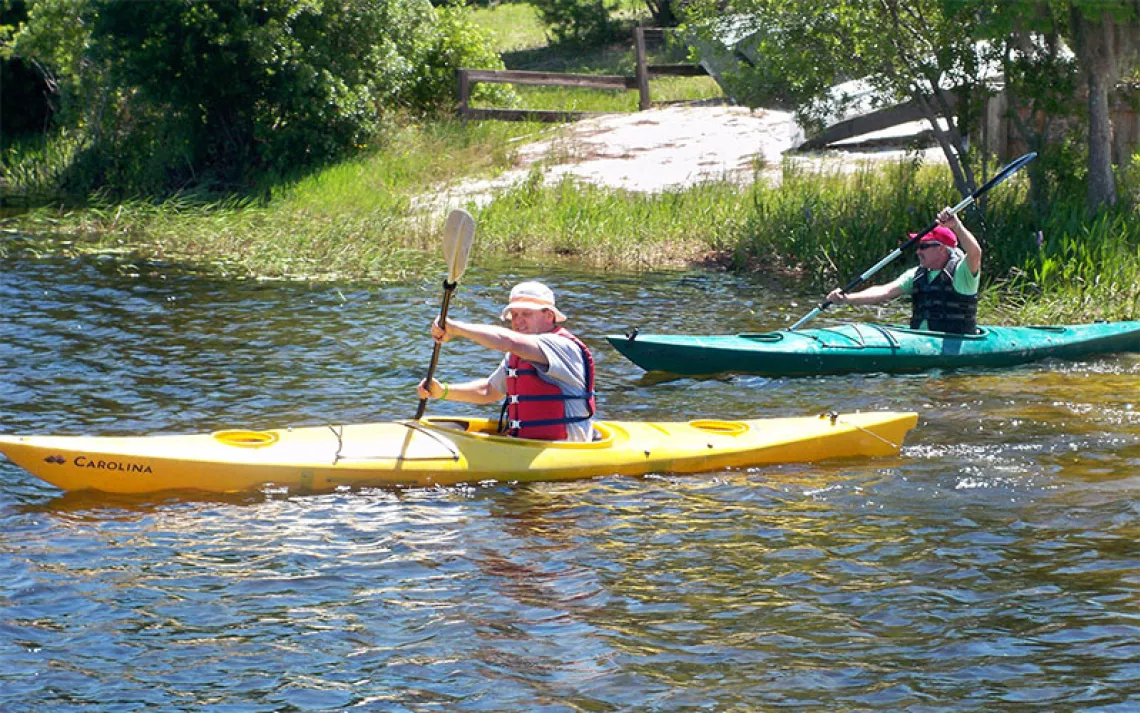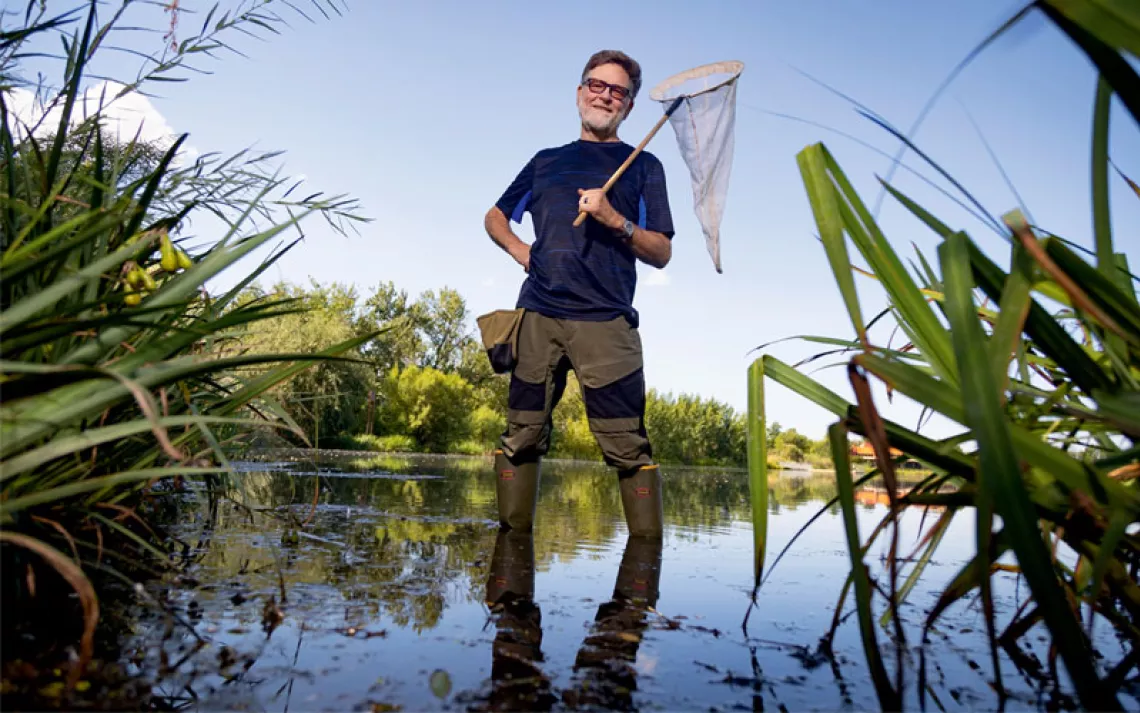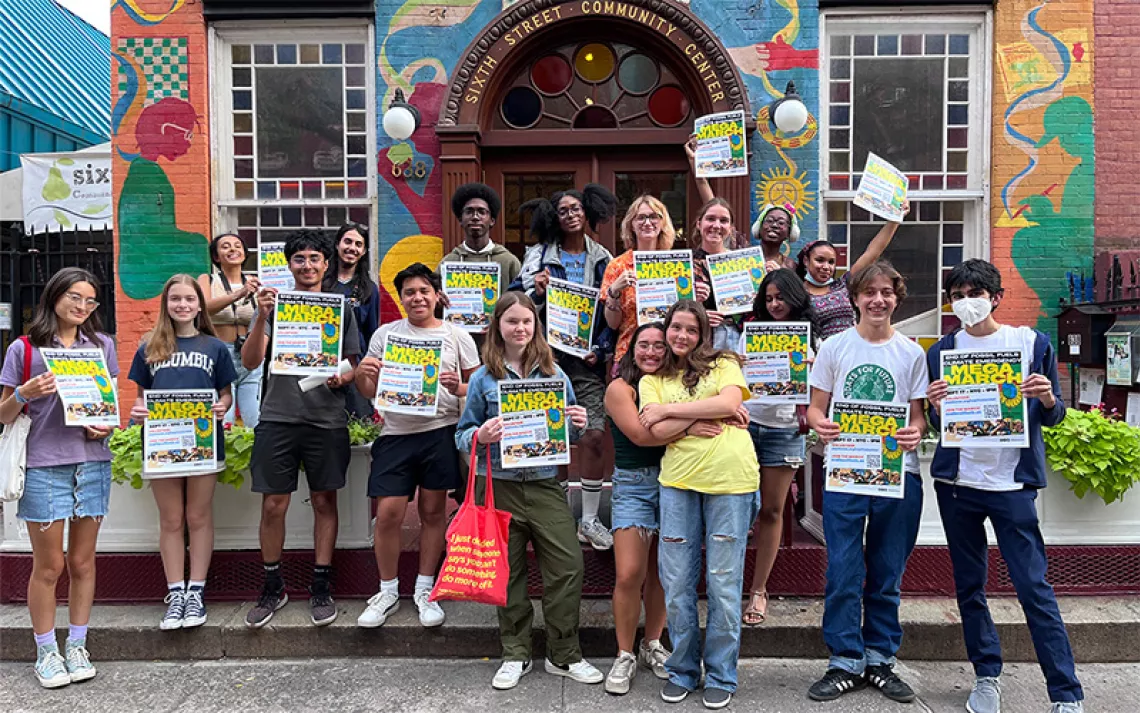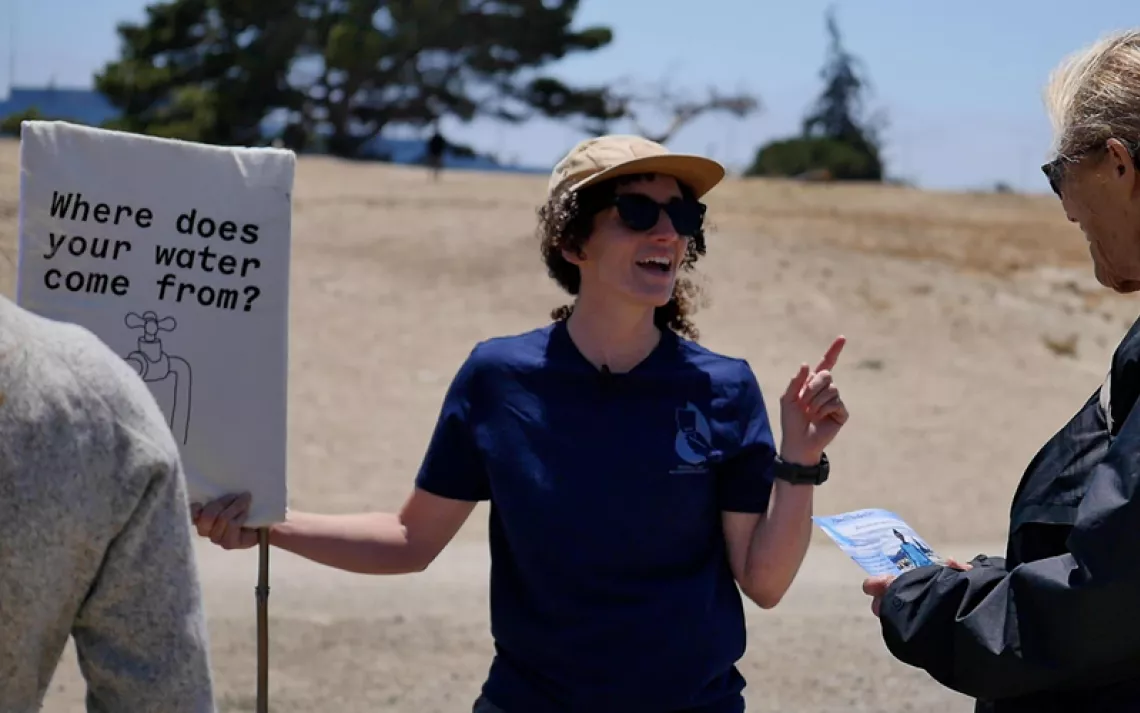In Florida, a Program Helps Children of Migrant Farmworkers Connect to the Outdoors
Research shows that time in nature can help all children thrive
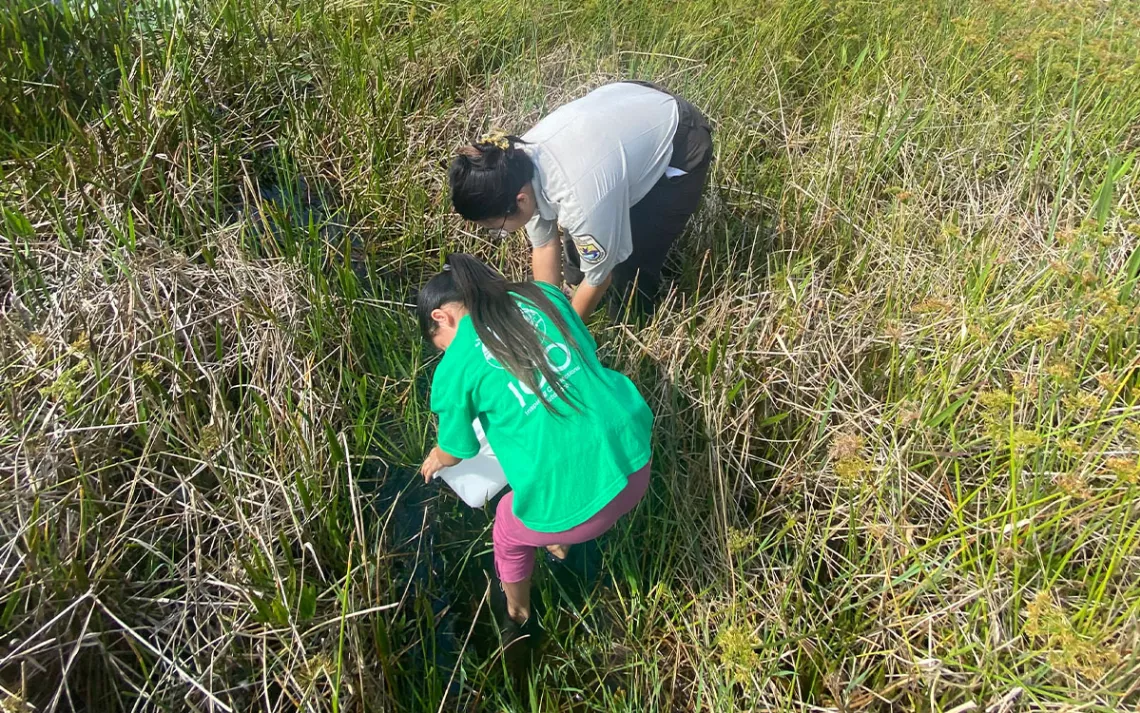
It’s a humid Saturday morning with temperatures already hitting 90 degrees at the Marshall Loxahatchee National Wildlife Refuge in Florida. The wildlife sanctuary—221 square miles—sits about 10 miles west of I-95 in Boynton Beach and includes the most northern fringe of the Everglades.
Third-grader Petrona Pablo-Torres eagerly offers to be among the first of 16 schoolchildren to follow park ranger Maria Perez into tropical wetlands to collect water samples. Petrona holds a small plastic tub as she enters the ankle-deep marsh. She worries her feet will get stuck in the water somehow. But they don’t. “When I first got there, I was scared and then I wasn’t scared,” she says. “It was fun.” Later, Perez guides the children in looking at macroinvertebrates in their water samples.
When we think of incentives that might motivate students to focus on schoolwork, prizes like free concert tickets or gift certificates to favorite restaurants come to mind. Micro dipping in a marsh doesn’t. But in Palm Beach County, volunteers with the Sierra Club’s Loxahatchee Group organized three Saturday outings this school year for the children of migrant farmworkers. The outings are a reward for students who regularly participate in after-school tutoring programs.
The outings are part of the Sierra Club’s Inspiring Connections Outdoors program. In 2022, the program facilitated 470 trips with 1,702 youth and adult participants. Before the pandemic, the program facilitated 712 trips with 13,180 youth and adult participants, according to Mel MacInnis, national director of outdoor engagement. “We are recruiting new team leaders, new trip leaders, and new partner agencies to this day,” she said.
In Palm Beach County, Alyssa Cadwalader has been a trip leader for 15 years. “The philosophy is if we get kids exposed to the outdoors who might not otherwise be, they will come to appreciate nature,” she say. “Maybe some of them may be inspired someday to take a role in preserving and protecting it.”
Research backs that up. “Children who have positive experiences in nature as a child and form a bond with nature, an affection for its qualities, grow up to be adults who not only hold pro-environmental attitudes but also take action to care for the earth,” says Andrea Faber Taylor, a teaching assistant professor at the University of Illinois Urbana-Champaign. She researches children's environments and behavior. “Some research indicates that it’s important to have those experiences prior to age 11, although positive nature experiences at any age are beneficial.”
The children of migrant farmworkers are a vulnerable group; 45 to 60 percent do not finish high school. This is due to a myriad of factors, including the need to care for younger siblings and to work themselves when not in school.
Jorge Echegaray, who manages the Palm Beach County Migrant Education program, says the outings “provide experiences that our migrant students would not have a chance to experience if it were not through this partnership.” He adds that a key selling point for him is that the program comes at no cost to the district. “We need to be resourceful with our grant money due to the limited nature of migrant funds.”
Antonio Guittierez is one of the staff of the Migrant Education program who volunteered time to attend the outing. He says many of the students live in small homes or trailers, in neighborhoods that are unsafe for outdoor play due to the prevalence of drugs and crime. Plus, family budgets make outings like these out of reach. “Most weekends, they stay inside their homes,” he says of the children. Echegaray notes the outings “provide positive educational experiences with the outdoors.”
Later in the morning, Perez, a former middle-school science teacher, shows the children how to use field scopes to look at the macroinvertebrates they gathered. These creatures play a big role in recycling nutrients in freshwater ecosystems. At lunchtime, under a shaded pavilion, Petrona is all smiles. “You can spend time with your friends and you can touch the fish,” she says.
 The Magazine of The Sierra Club
The Magazine of The Sierra Club
